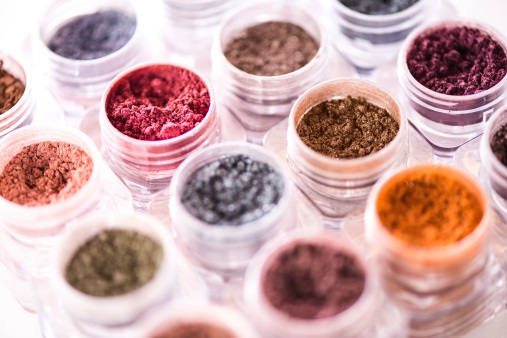In today’s world, beauty is evolving, embracing sustainability, and returning to nature. As consumers grow more conscious of the ingredients in their skincare and cosmetics, the rise of mineral makeup represents a shift toward purity, simplicity, and environmental responsibility. Gone are the days when beauty was synonymous with chemical-laden products. Instead, mineral makeup offers an alternative that is as gentle on the skin as it is on the planet.
However, not all products labeled “natural” or “mineral” live up to the hype. Misleading marketing can make it difficult to discern what’s truly beneficial. Understanding what mineral makeup is, how it works, its benefits, and what to avoid is essential in making informed decisions. Let’s dive into the world of mineral makeup and discover how it can enhance natural beauty without compromising skin health.
What Is Mineral Makeup?
Mineral makeup is a type of cosmetic made from naturally occurring minerals finely milled into powders. Unlike traditional makeup, which often contains synthetic chemicals, preservatives, and fragrances, mineral makeup is free from these irritants. This makes it an excellent choice for individuals with sensitive skin, acne-prone skin, or conditions like rosacea. It is often recommended by dermatologists due to its skin-soothing and anti-inflammatory properties.
One of the key advantages of mineral makeup is its versatility in coverage. Whether you prefer a sheer, natural look or fuller coverage, mineral makeup can be layered without creating a heavy, cakey appearance. It enhances your skin’s natural radiance, giving a fresh, glowing look while minimizing imperfections. Moreover, because it is non-comedogenic (meaning it won’t clog pores) and naturally resistant to bacteria, it’s a healthier choice for long-term wear.
Application Techniques
Mineral makeup is typically applied with a soft brush or sponge. The technique you use can greatly affect the finish. For a lighter, more natural look, gently dust the powder onto your skin using circular motions. Avoid buffing too vigorously, as this can irritate the skin and settle makeup into fine lines and pores. For those who prefer a more polished look, apply the powder with a damp sponge to achieve a smoother, more flawless finish.
Essential Ingredients in Mineral Makeup
The ingredients in mineral makeup determine its quality and effectiveness. Here’s a closer look at the key components that make mineral makeup unique:
- Titanium Dioxide: Acts as a natural sunscreen and provides a reflective quality that minimizes the appearance of fine lines and wrinkles.
- Zinc Oxide: Known for its broad-spectrum sun protection, zinc oxide is also an anti-inflammatory, helping to calm irritated skin.
- Sericite: A type of mica that helps to absorb oil, reduce shine, and create a smooth, matte finish.
- Kaolin Clay: Known for its oil-absorbing properties, kaolin clay helps to control shine, especially for oily skin types.
- Mica: Adds a natural shimmer or glow, giving skin a luminous finish without being overly shiny.
- Iron Oxides: Provide rich pigmentation, giving mineral makeup its natural color tones for blushes, bronzers, and foundations.
Ingredients to Avoid
While mineral makeup is generally safe, some formulations may include harmful or irritating ingredients. It’s important to read labels carefully and avoid the following:
- Talc: Often used as a filler, talc can cause respiratory issues when inhaled and is linked to potential health concerns.
- Bismuth Oxychloride: A common irritant that can cause itching and rashes, particularly for those with sensitive skin.
- FD&C Dyes: Synthetic colorants derived from coal tar, which can be harsh and allergenic.
- Carmine: A red pigment made from crushed beetles, which may not appeal to those seeking vegan or cruelty-free products.
Benefits of Mineral Makeup
1. Skin-Friendly
Mineral makeup’s gentle formulation makes it ideal for those with sensitive or reactive skin. Its anti-inflammatory properties can soothe redness and irritation, making it perfect for post-procedure skin care, such as after laser treatments or chemical peels.
2. Natural Sun Protection
With ingredients like zinc oxide and titanium dioxide, mineral makeup provides natural SPF protection, shielding the skin from harmful UVA and UVB rays without the need for chemical sunscreens.
3. Breathable Coverage
Unlike heavy liquid foundations, mineral makeup allows the skin to breathe, reducing the risk of clogged pores and breakouts. It provides a lightweight feel while still covering imperfections effectively.
4. Long Shelf Life
Since minerals do not support bacterial growth, mineral makeup has a long shelf life and doesn’t require preservatives. This means fewer additives and a product that stays fresh for years.
Choosing the Right Brand
Not all mineral makeup brands are created equal. While some high-profile brands may dominate the market with flashy advertising, it’s important to look beyond marketing to the actual ingredient list. Many smaller, independent brands offer superior formulations at a fraction of the cost. Look for companies that provide sample sizes, allowing you to test the product before committing to a full-size purchase.
Finding Quality Mineral Makeup
Mineral makeup is more than just a beauty trend—it’s a commitment to healthier skin and a cleaner, more natural approach to cosmetics. By choosing products that are free from harmful chemicals and filled with nourishing minerals, you’re investing in your skin’s long-term health. Remember to always read ingredient labels, test products when possible, and select brands that align with your values and skin care needs.
In a world where beauty standards are evolving, embracing mineral makeup allows you to enhance your natural beauty while staying true to your commitment to well-being and sustainability. The journey to healthier skin starts with knowledge, and with the right products, you can achieve a radiant, flawless complexion that feels as good as it looks.



